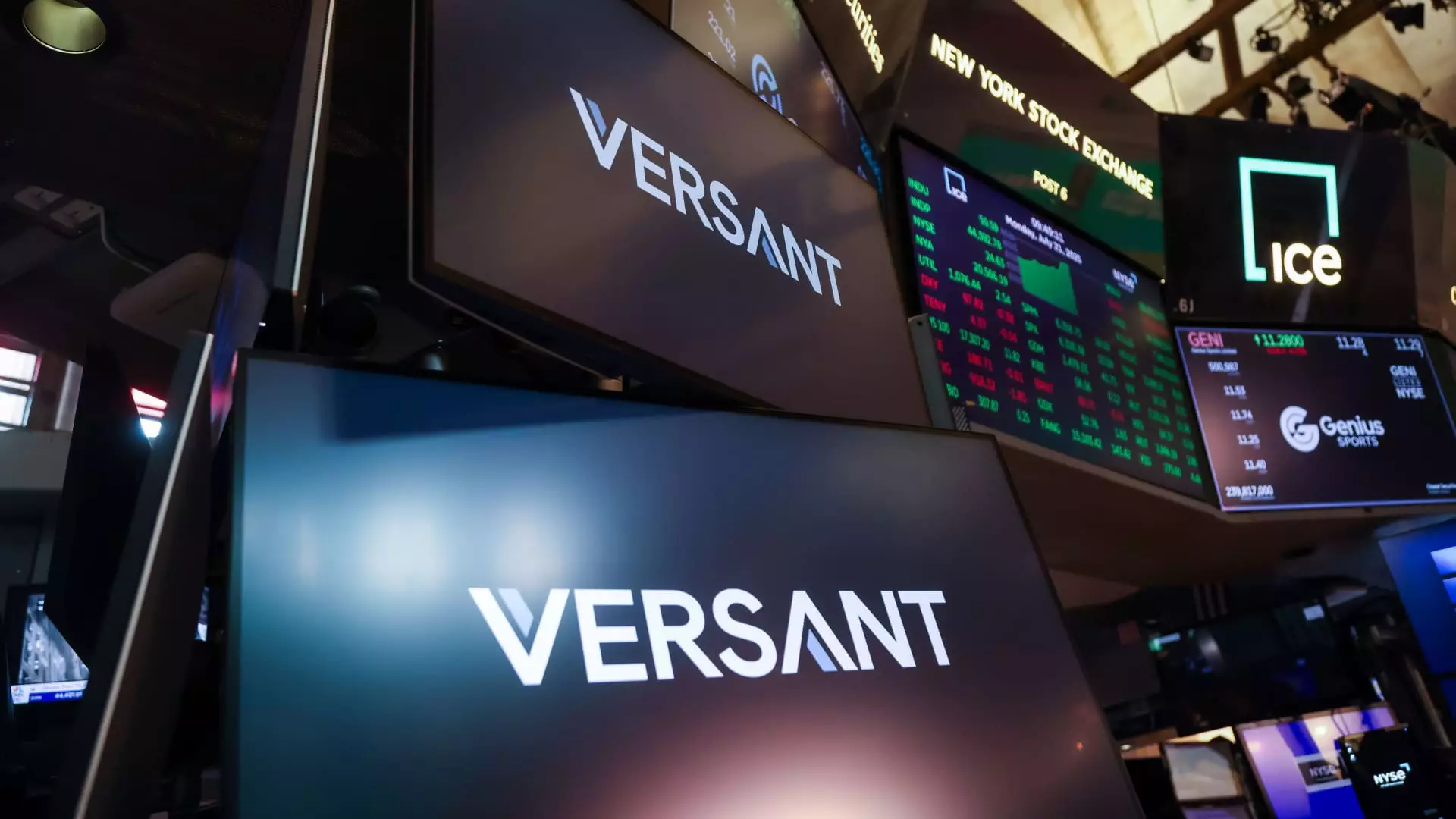The recent announcement of Versant’s formation and its impending independence marks a pivotal, yet deeply problematic shift in the media landscape. While at first glance this appears to be a strategic move to unlock value and foster innovation, a closer examination reveals a troubling reliance on legacy industries, questionable leadership choices, and a fundamental misunderstanding of the market’s needs. By positioning itself as a new corporate entity with a diverse board of executives and financiers, Versant risks replicating the pitfalls of past conglomerates that prioritized immediate profit over sustainable, responsible media growth.
This move seems to be motivated less by a genuine commitment to quality content or digital innovation and more by a desire to reshape ownership structures for short-term gains. With an emphasis on spinning off NBCUniversal’s cable networks—including stalwarts like CNBC, MSNBC, and USA Network—Versant potentially undermines the very diversity and independence that once characterized American media. The digital assets it hopes to house are also highly concentrated, showing little evidence of a transformative vision for the future of media that aligns with consumer interests or societal progress.
Leadership That Reflects the Old Guard
The composition of Versant’s board raises immediate concerns. Mark Lazarus, with his background in traditional broadcasting, indicates that the company’s leadership is rooted more in the comfort zone of legacy media than in adaptive, forward-looking innovation. Though Lazarus speaks of “defining long-term strategy,” there’s no evidence that this strategy diverges significantly from past models that prioritized monopolistic dominance and short-term shareholder returns.
Equally troubling is the appointment of David Novak, a corporate veteran from Yum Brands, as prospective chairman. While his success in the fast-food realm is undeniable, it does little to suggest a nuanced understanding of modern media, technology, or the digital consumer. It underscores a leadership approach rooted in traditional corporate growth rather than bold, progressive change. This pattern of assembling a team with extensive experience in established industries—finance, food, banking—is a telltale sign that Versant’s strategic priorities may remain anchored in safeguarding old economic interests rather than pioneering innovative content or business models.
Market Reliance on Obsolete Models
What’s most troubling about Versant is its apparent commitment to contending within an increasingly fragile and fragmented media environment using old tools. For example, holding onto cable networks like CNBC and MSNBC is a risky move; these are increasingly marginalized in a digital-first world. The inevitable decline of traditional cable audiences calls into question whether their inclusion in Versant’s portfolio signifies a wise investment or a desperate attempt to cling to outdated revenue streams.
Moreover, the digital assets like Fandango and Rotten Tomatoes, while seemingly more modern, do little to diversify the core issues facing media today—namely, consumer disengagement, ad-blocking, and the dominance of tech giants like Google and Facebook. The assumption that these assets can thrive under a new corporate umbrella without meaningful innovation or user-centric shifts ignores the evolving landscape where content, delivery, and monetization models are radically changing. It’s a gamble rooted in nostalgia rather than strategic foresight.
Broader Implications of a Fragmented Media Monopoly
The formation of Versant symbolizes a broader trend of consolidating control under varied banners, but with the potential to deepen societal divisions rather than bridge them. This move could lead to fewer independent voices on the airwaves, more homogenized content tailored to the financial interests of a few, and diminished accountability. While proponents might argue that spin-offs foster competition, in reality they often result in increased complexity and opacity—widening the gap between corporations and the public.
In the center-right perspective I advocate, such corporate maneuvers should be scrutinized through the lens of responsibility and societal impact. Media conglomerates that double down on consolidation risk eroding the cultural pluralism necessary for a healthy democracy. The apparent focus on maximizing shareholder returns at the expense of public interest signals a fundamental misalignment of priorities. In an era where information is power, the unchecked growth of corporatized media conglomerates like Versant threatens to marginalize dissenting voices and control narratives for economic gain.
In conclusion, the creation of Versant exposes a fundamental flaw in how legacy media companies are attempting to stay relevant: by doubling down on old models under new brands, they ignore the seismic shifts transforming the media landscape. Leadership steeped in traditional industries, combined with a misguided trust in existing assets and a nostalgic reliance on cable, suggests this is less a strategic boldness than a reckless retreat. If anything, it highlights the need for a more critical, innovative approach—one that recognizes the unpredictable future of media and respects the societal importance of preserving diverse, independent voices.


Leave a Reply